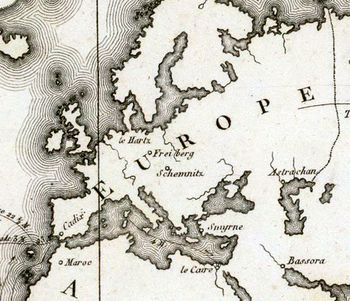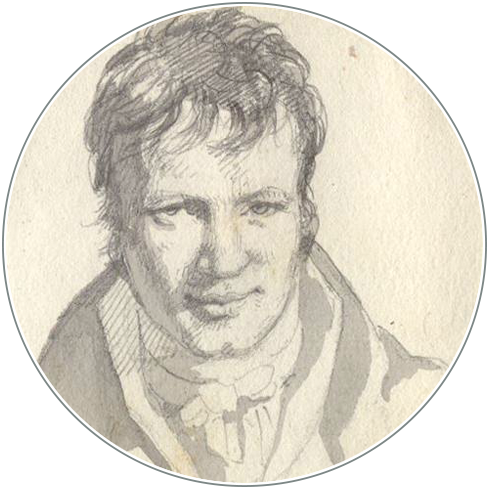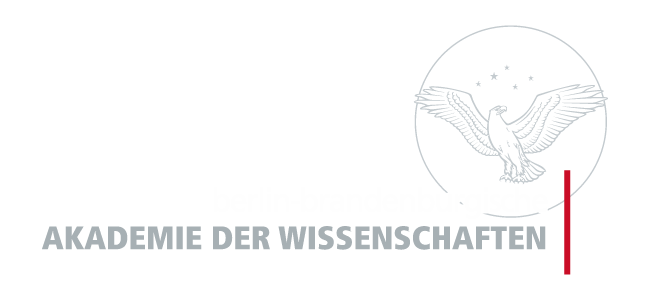A Political Economy of Nature: Alexander von Humboldt's Essay on the Fluctuations in the Supplies of Gold
DOI:
https://doi.org/10.18443/252Schlagworte:
Wirtschaftgeschichte, Wissenschaftsgeschichte, Kameralismus, Bergbau, Edelmetalle, Gold, Silber, PlatinAbstract
Zusammenfassung
In seinem Aufsatz „Ueber die Schwankungen der Goldproduktion mit Rücksicht auf staatswirthschaftliche Probleme“ (1838) entfaltet Alexander von Humboldt auf wenigen Seiten eine Weltgeschichte des Edelmetallverkehrs von der Antike bis ins 19. Jahrhundert. Der vorliegende Artikel geht Humboldts ökonomischem Denken als Teil seiner Forschungen zur Natur- und Menschheitsgeschichte nach. Er beginnt mit einem kurzen Abriss der von spätmerkantilistischen und frühliberalen Einflüssen geprägten Ausbildung Humboldts. Der Artikel diskutiert anschließend eine von Humboldt angefertigte Weltkarte sowie vier darauf bezogene Schaubilder, die historische und zeitgenössische statistische Daten zur graphischen Vision eines globalen Wirtschaftskreislaufs kombinieren. In einem weiteren Schritt geht der Artikel Humboldts Anwendung historischer und naturgeschichtlicher Forschungsmethoden auf dem Gebiet der politischen Ökonomie am Beispiel des Aufsatzes von 1838 nach. Den Schluss der Untersuchung bildet Humboldts Auseinandersetzung mit dem Edelmetall Platin, dessen begrenzte Verbreitung im Widerspruch zur Idee eines freien weltweiten Austauschs stand.
Résumé
Dans son mémoire « Sur la production de l’or considérée dans ses fluctuations » (1838), Alexandre de Humboldt développa une histoire universelle de la circulation des métaux précieux de l’antiquité jusqu’au XIXe siècle. Le présent article poursuit la pensée économique de Humboldt en la mettant dans le contexte de ses études physiques, naturelles et historiques. L’article commence par un abrégé de l’éducation professionnelle de Humboldt, qui était marquée par des influences caméralistes et libérales à la fois. Puis l’article commente une mappemonde et quatre diagrammes, dessinés par Humboldt; la combinaison des données statistiques historiques et contemporaines constitue la vision cartographique d’un circuit économique global. Dans un second temps, l’article aborde le mémoire de 1838 et analyse l’emploi des méthodes de recherche des sciences naturelles et historiques dans le domaine de l’économie politique. L’article se conclut par un examen des remarques de Humboldt sur le platine, un métal précieux qui en raison de sa répartition naturelle limitée était en contradiction avec l’idée d’un libre échange mondial.
Abstract
In his “Essay on the Fluctuations in the Supplies of Gold” (1838) Humboldt presents a global history of the flow of precious metals from antiquity to the 19th century. This paper traces Humboldt’s economic thinking within his natural and historical research, starting with an outline of his educational background which incorporated late mercantilist and early liberal influences. It then discusses a world map and four charts drawn by Humboldt, which combine historical and contemporary statistical data into a cartographical vision of a global economic circuit. In a next step, the article explores Humboldt’s application of natural and historical research methods in the field of political economy, using the example of his 1838 essay. Finally, the article addresses Humboldt’s discussion of platinum, a precious metal whose limited natural distribution contradicted the idea of free global exchange.

Downloads
Veröffentlicht
Zitationsvorschlag
Ausgabe
Rubrik
Lizenz
Copyright (c) 2017 Ulrich Päßler

Dieses Werk steht unter der Lizenz Creative Commons Namensnennung - Nicht-kommerziell 4.0 International.
Die Rechte der eingesandten Artikel bleiben bei den Autoren und werden unter einer Creative Commons-Lizenz (CC BY-NC 4.0) veröffentlicht. Alle bei HiN publizierenden Autorinnen und Autoren akzeptieren dieses Lizenzmodell.
Die Autorinnen und Autoren tragen die Verantwortung für das Einwerben der Bildrechte.
Die Rechte am Layout und Design der Zeitschrift sind nicht übertragbar und können nicht ohne vorherige Zustimmung von HiN in anderen Publikationen weiterverwendet werden.









